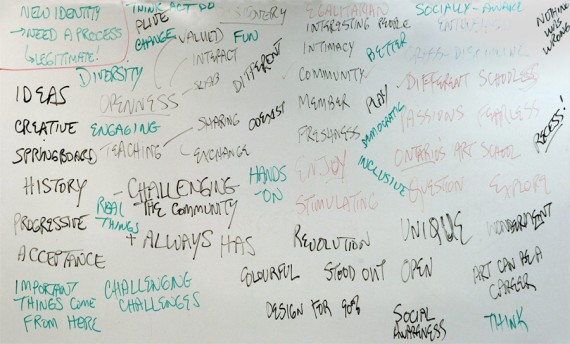Appreciative Inquiry was first conceived in 1986 by David Cooperrider and Suresh Srivastva while they were studying an organization. In this study they interviewed half the organization looking for “problems to be solved” and the other half looking for “miracles to be embraced”. What they discovered was that the information they collected was significantly different in each case.

The Basics
Appreciative Inquiry aims to search for the best in people, their organizations, and applicable situations which affect each of their immediate worlds. It is a systematic discovery that allows a ‘best of scenario’ approach through the practice of asking questions that support an ecosystem’s positive outlook and the ability to increase its potential and harness positive forward momentum. AI assumes that every problem has a rich ecology of purely inspirational but untapped components. Instead of negativisms which spawn criticisms that often nullify opportunities, AI leads groups to iteratively discover, dream and design their own destinies. Appreciative Inquiry should also be applicable, provocative and collaborative.
In practice, Appreciative Inquiry is the art of crafting and asking questions that will strengthen the ability of an ecosystem to better anticipate, capture and amplify positive potential. ‘Positive change’ is the core of this practice which focuses on the following four processes:
- Discover | The identification of organizational processes that work well.
- Dream | The envisioning of processes that would work well in the future.
- Design | Planning and prioritizing processes that would work well.
- Destiny | The implementation (execution) of the proposed design.
A Case Study – OCADU
On June 09, 2010 I participated in a DwD session led by Dr. Douglas Reid, a strategy professor at Queen’s University School of Business. Our goal that night was to help OCAD with their rebranding.
In its past OCAD had difficulties in transitioning from the ‘Ontario College of Art’ to the ‘Ontario College of Art and Design’ and now they were faced with the new name of the ‘Ontario College of Art and Design University’. This problem was detailed by an OCADU Director and is best summed up by mentioning that there is great passion for the University at all levels.
So for the next couple of hours we spent the time determining the conditions, forces and factors that made OCADU a great experience. We thought about the process first and then decided that 3 characteristics would best help the challenge of creating a new identity for the school. These characteristics were:
- Receptivity to all ideas
- An iterative-based solution
- The idea of ‘fun’
In short we decided to take in everything that was said, we didn’t rush to conclusions because we knew the solution was going to be iterative and we fully embraced the process. We talked a lot about what OCADU was doing well and what it could do even better; we never dwelled on its mistakes, or invited any ‘blamestorming’. We worked hard at asking useful questions that helped to reveal more about the positive nature of the University and did so without having to justify (in a defensive position) anyone’s ideas. Very quickly we got to a common ground and even if it wasn’t always entirely on point, many of the tangents we went on were productive. What we came up with was the following:

Our conclusion after this exercise was not about what needed to be done differently this time or what needed fixing. Instead the Appreciative Inquiry process lead us to name the positive attributes of the University and further distill which of these could best be harnessed for marketing the change from a College to a University label. The OCADU Director left with a plethora of thoughts and positive insights into the merit of the institution and now has a generous platform on which to begin the new marketing transition process.
On a personal note this is only the third or fourth time I have used this process but it certainly gave some of the best results I have ever witnessed. I believe the difference in this session was that the participating group signed on to the AI methodology and understood its potential from the start. Thanks to everyone who participated and thank you to OCADU for the real life challenge.
Comments
One response to “Appreciative Inquiry”
[…] Thanks to DwD regular James Caldwell for posting a review of our June DwD session on his blog. […]